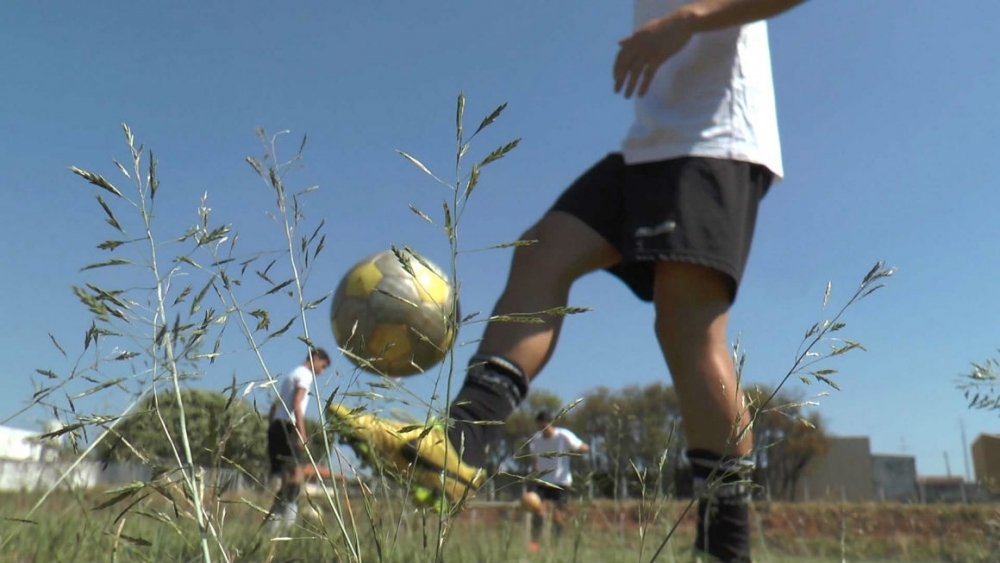

Developed at the Center for Research in Mathematical Sciences Applied to Industry, this cloud-based system is being tested by a soccer club academy (photo: Phelipe Janning / Agência FAPESP)
Developed at the Center for Research in Mathematical Sciences Applied to Industry, this cloud-based system is being tested by a soccer club academy.
Developed at the Center for Research in Mathematical Sciences Applied to Industry, this cloud-based system is being tested by a soccer club academy.

Developed at the Center for Research in Mathematical Sciences Applied to Industry, this cloud-based system is being tested by a soccer club academy (photo: Phelipe Janning / Agência FAPESP)
By Elton Alisson
Agência FAPESP – Soccer coaches can now rely on the help of a “virtual talent scout” to hone the skills of the players in their charge and to find new potential top performers.
A group of researchers at the University of São Paulo’s Mathematics and Computer Science Institute (ICMC-USP) in São Carlos, São Paulo State, Brazil, have developed a statistical method called iSports. It is already available for identifying soccer players with above-average performance, and the researchers plan to extend it to a range of other sports.
The project is run by the Center for Research in Mathematical Sciences Applied to Industry (CeMEAI), one of the Research, Innovation and Dissemination Centers (RIDCs) funded by FAPESP.
“An aspiring professional soccer player in Brazil has to go through several different selection processes and may have to wait years to have his talent recognized,” said project coordinator Francisco Louzada, a professor at ICMC-USP.
“The system we’re developing is a ‘virtual talent scout’ that will help make that recognition happen sooner,” Louzada told Agência FAPESP.
The system is being finalized and will go live before the Rio Olympics in 2016. Initially designed for soccer players, it is based on the results of physical tests and measurements of individual skills.
Players are put through tests by technicians and physical education professionals to gauge their performance, endurance, speed, anaerobic fitness, aerobic power, etc. as they sprint various distances.
The soccer skill tests include passing, dribbling and shooting accuracy. In the passing test, for example, the athlete is required to kick the ball at a target four times. The dribbling test involves fast zigzagging in and out of a line of cones. In the shooting test, the player must receive the ball and successfully target certain areas of the goal.
The results of each player’s physical and skill tests are entered into the system’s database.
The system uses advanced statistical models to analyze players’ test results individually and in aggregate. It then calculates indicators and displays them in the form of graphics and other illustrations for viewing on the screen of a computer, tablet or smartphone.
All this allows an amateur club coach, for example, to compare each player’s performance with those of the other group members and to identify any individuals who are above average and should apply for selection by professional clubs as well as those who need to improve their performance on the pitch.
“The system can be customized and adapted for any high-performance sport. It can be applied to individuals and groups. All that’s required is slotting in the appropriate physical and skill tests,” Louzada said.
Data sharing
Based on cloud computing, a technology that permits remote access to software and services without the need for installation on a local device, the system also allows users to compare and share data on the performances of athletes playing the same sport in different parts of Brazil.
To do this, technicians, PE professionals and talent scouts must register with the system and input the results of their athletes’ physical and skill tests.
As in a social network, a coach can invite a colleague to connect with him so they can share their players’ indicators. This feature facilitates comparisons between players in the same town or state, or even nationwide. The idea, Louzada explained, is to help coaches and talent scouts identify youngsters with the potential to become professional players.
“Talented kids are often hidden away in some backwater and unlikely to be discovered without something like iSports, which can support the efforts of scouts to locate new talent,” he said.
The system is currently being used to analyze the performance of youngsters who play for the academy team of Santos Futebol Clube, which is known as “Meninos da Vila.”
“We hope to offer the system to other soccer club academies so that it will be widely tested,” Louzada said.
A prototype of the system is available at www.mwstat.com/isports.
Republish
The Agency FAPESP licenses news via Creative Commons (CC-BY-NC-ND) so that they can be republished free of charge and in a simple way by other digital or printed vehicles. Agência FAPESP must be credited as the source of the content being republished and the name of the reporter (if any) must be attributed. Using the HMTL button below allows compliance with these rules, detailed in Digital Republishing Policy FAPESP.





